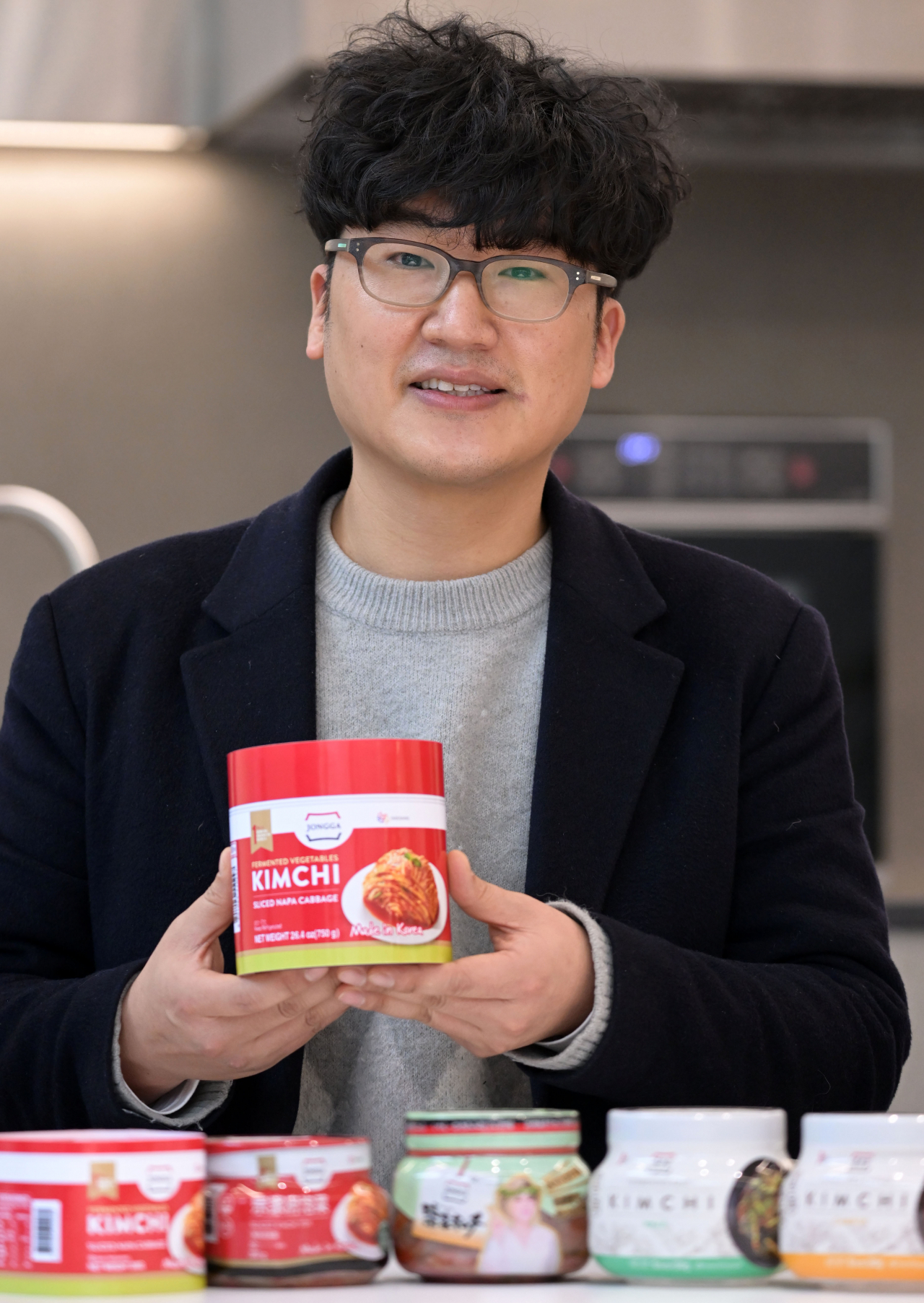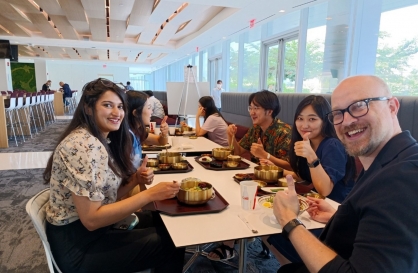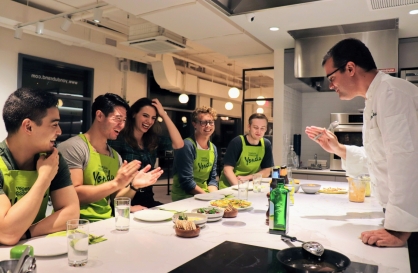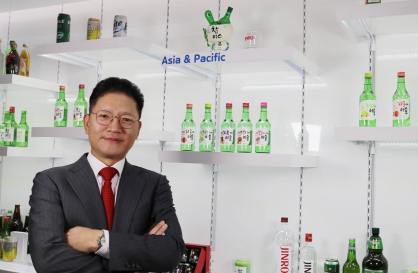Most Popular
K-Food
[K-Food] Daesang aims to grow kimchi consumption globally
After stellar growth in US, Asia, South Korea’s No. 1 kimchi exporter seeks expansion in Europe
By Lee Yoon-seoPublished : March 16, 2023 - 16:17

This is the third installment of a series of interviews with global business chiefs of South Korean food companies that are expanding aggressively in overseas markets. -- Ed.
Characteristically zesty, zingy and spicy -- and with very little in the way of similar flavors abroad -- kimchi is arguably Korea's most symbolic dish. Strategies to creatively market kimchi so that it may become common-place on dinner tables around the world are essential for kimchi to penetrate into overseas markets, says the global marketing chief of Daesang, a South Korean food giant and the nation’s largest kimchi exporter.
In 2021, Daesang exported $67 million worth of kimchi, about 42 percent of the nation’s $159 million total kimchi exports. After years of global expansion, Daesang currently earns almost 30 percent of its sales from abroad, with kimchi sales accounting for almost 10 percent.
"Despite increased awareness, kimchi is still generally considered a strange, unfamiliar dish in the overseas market," said Jeong Chan-kee, team leader of the global marketing department at Daesang, during a recent interview with The Korea Herald.
"Taking steps towards bridging foreigners' contact with the dish is essential," he said.
Daesang's strategy for selling kimchi in the global market centers around inventive localization of the dish to cut across cultural boundaries.
"In order for kimchi to be something that is consumed on a routine basis by foreigners, we are taking creative measures to make the delicacy as familiar as possible. For example, we are in the process of researching and developing kimchi jam, or pasta toppings with kimchi sauces,” Jeong said.
"Such menus won't be our main selling products, but they will serve as products for kimchi to stealthily make its way into Westerners' daily food culture, while functioning as the stepping stone for encouraging Westerners to try more traditional Korean kimchi.”
In addition to its unconventional kimchi-related products, Daesang said it is also making tweaks in its exported kimchi products to have them actively reflect Western tastes, such as taking out kimchi's potent garlic scent and replacing it with coriander or rosemary scents instead.
Daesang is also looking into widening their selection of pickled kimchi or garnishing kimchi, using popular Western ingredients such as kale and carrots, instead of mainly focusing on traditional cabbage-based kimchi.
Jeong said the company currently views Europe as one of its most promising markets for sales of its kimchi and kimchi-related products.
"The Europeans have high pride in their food culture. It's long been difficult for the Korean food industry to successfully foray into their markets with traditional dishes," said Jeong.
"Because of this perception, the European market remains largely untapped. There are many small and large local competitors for kimchi manufacturers in areas such as the US, Japan and China, but virtually none in Europe as of now," he said.
In addition, Jeong noted that the European market is changing, with YouTube and other social networking services highlighting diverse global foods to millions of viewers around the world. With digital globalization, resistance to trying new delicacies has definitely begun to subside, especially among young European consumers, Jeong said.
"Daesang's emphasis on global business continues to grow larger and larger -- with the domestic market stalled. If given a choice to target 50 million (consumers in the local market) or 8 billion potential consumers (worldwide), who wouldn't pick the latter?" said Jung.
"With people aging, and the market completely saturated with competition, (Korean) businesses will not be able to survive if they do not start focusing on global businesses," he added.
Ultimately, Daesang is seeking to make a name for itself in overseas markets by “surrounding” foreign consumers with specialized kimchi products. The ultimate aim is not to have kimchi be merely a one-time experience for foreign consumers, but something they can enjoy on a regular basis.
"Gochujang, or red chili paste, can be turned either into a hot-sauce or a thick paste, depending on consumer needs. Dumplings can have different fillings that reflect local demands. Kimchi can do the same, and kimchi's transformation is only limited by our imagination," Jeong said.
"Daesang's Jongga kimchi brand has built credibility, unrivaled quality and a database with its 31 years of having selling kimchi, and, as the country's top exporter, we will continue to pave the way in the world as the country's global ambassador for kimchi.”
























![[Today’s K-pop] Treasure to publish magazine for debut anniversary](http://res.heraldm.com/phpwas/restmb_idxmake.php?idx=642&simg=/content/image/2024/07/26/20240726050551_0.jpg&u=)